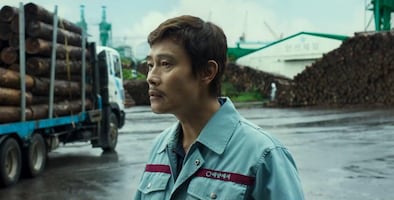Más Información

Sheinbaum anuncia fecha para credencialización del sistema de salud; destaca esfuerzos para inaugurar Hospital Regional No. 25

Él es Alejandro Rosales, asesino de Sandy Ly en EU; era uno de los 10 más buscados del FBI y fue detenido en México

Artículo 19 condena agresión y amenazas a tres periodistas de Sin Embargo en la CDMX; exigen investigación a la Fiscalía
Juanita and Damian, El Sapo and 11 of their friends laugh when they find a hole with water. The game looks like fun: children aged 4 to 12 years deeping their hands in the mud... but they do it to get water for their families to drink, wash and bathe.
Fifteen families displaced by violence live in a town on the region known as Costa Chica. In 2012 they fled their home due to violence in La Laguna and Hacienda de Dolores; Coyuca de Catalán, in Guerrero. A total of 107 people are now living in Tepango and La Unión, where they dig the river “like animals" to get water.
Mariana Díaz, daughter of Damián Díaz Hernández, who was murdered in 2011 in Tierra Caliente, said they had to leave everything behind in December 2012, when the state was still ruled by Ángel Aguirre Rivero, because loggers and alleged drug traffickers stripped them of their lands. Back then the governor promised to resettle them with homes, jobs and land to plant.
But none of these promises came true, because although they got nine houses, they are poorly built on unstable hillsides and they have no job. In La Unión 31 children walk two kilometers every day to get to school and adults work in underpaid jobs. For example Mariana helps cook food, but the job is not profitable because she is paid 100 pesos (US$5.5) a day but spends 40 (US$2.2) in transportation.
Most of the displaced in Coyuca de Catalán belong to the families Díaz Pérez and Santana Palacios. From 2005 to 2012 they lost 27 relatives.
Some days they eat one tortilla per person and chile, because they have no money, neither land to plant.
Since 2011, 155 families have been displaced from Coyuca de Catalán, according to the Human Rights Center of the Mountain José María Morelos y Pavón. And even now they are still harassed. Just three days ago Mariana Díaz received a threatening message.
Noticias según tus intereses
[Publicidad]
[Publicidad]











